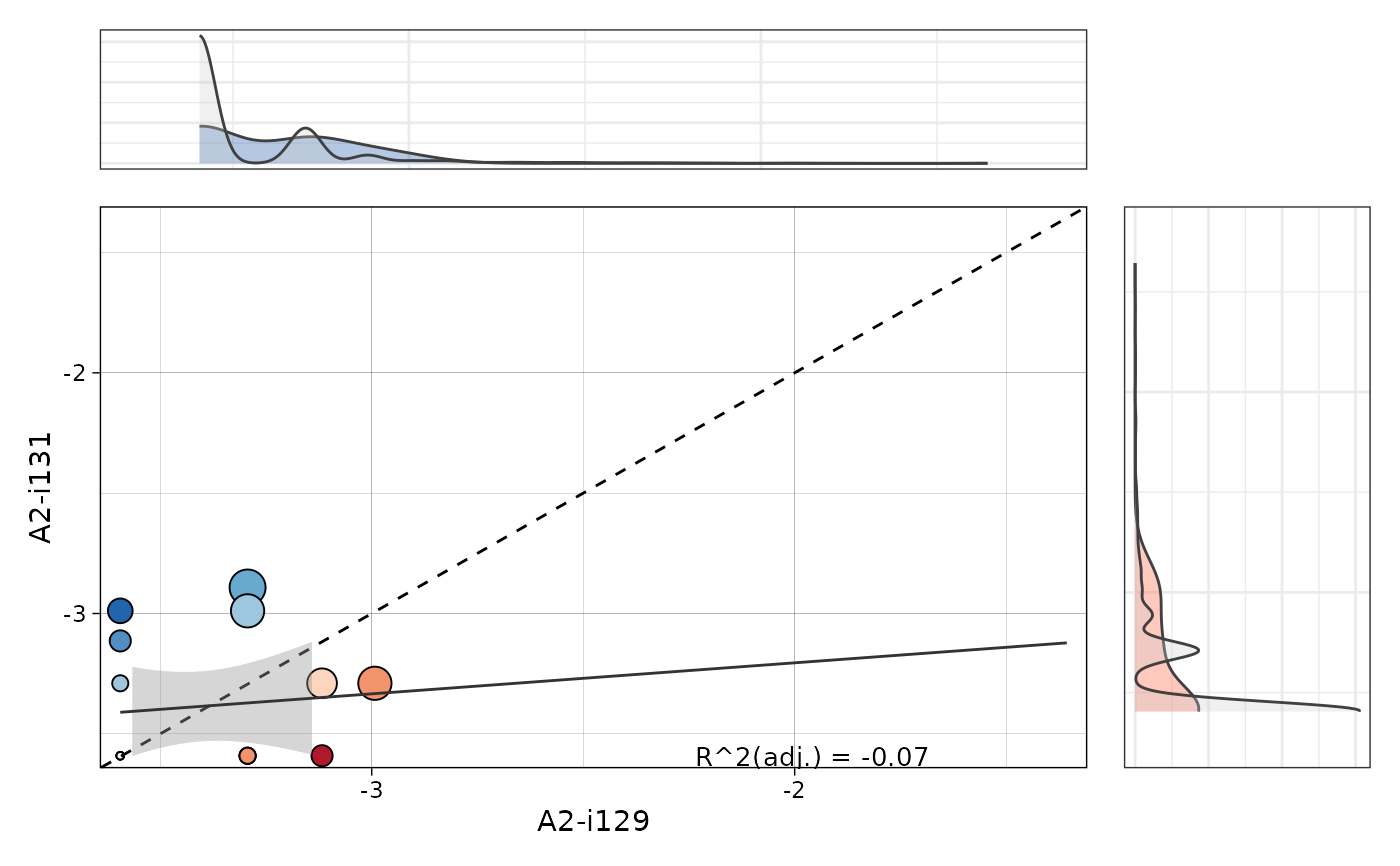Usage
pubRep(
.data,
.col = "aa+v",
.quant = c("count", "prop"),
.coding = TRUE,
.min.samples = 1,
.max.samples = NA,
.verbose = TRUE
)Arguments
- .data
The data to be processed. Can be data.frame, data.table::data.table, or a list of these objects.
Every object must have columns in the immunarch compatible format. immunarch_data_format
Competent users may provide advanced data representations: DBI database connections, or a list of these objects. They are supported with the same limitations as basic objects.
Note: each connection must represent a separate repertoire.
- .col
A string that specifies the column(s) to be processed. Outputs one of the following strings, separated by the plus sign: "nt" for nucleotide sequences, "aa" for amino acid sequences, "v" for V gene segments, "j" for J gene segments. E.g., pass "aa+v" to compute overlaps on CDR3 amino acid sequences paired with V gene segments, i.e., in this case a unique clonotype is a pair of CDR3 amino acid and V gene segment.
- .quant
A string that specifies the column to be processed. Set "count" to see public clonotype sharing with the number of clones, set "prop" to see proportions.
- .coding
Logical. If TRUE then preprocesses the data to filter out non-coding sequences.
- .min.samples
Integer. A minimal number of samples a clonotype must have to be included in the public repertoire table.
- .max.samples
Integer. A maxminal number of samples a clonotype must have to be included in the public repertoire table. Set NA (by default) to have the maximal amount of samples.
- .verbose
Logical. If TRUE then outputs the progress.
